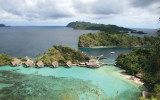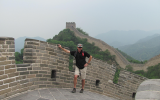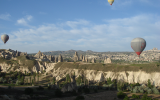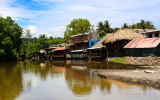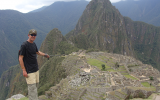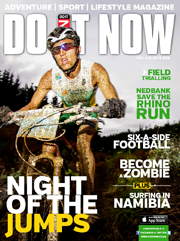- Magazine
- #readityourway
- Weekly Stories
- #shareyourstory
-
Adventure
- Abroad Travelling
- Africa Travelling
- Events
- Expos & Shows
- Festivals
- Fishing
- Free Diving
- Gliding
- Horse Riding
- Inspiring People
- Islands Travelling
- Kite/Windsurfing
- Motorbiking
- Motorised Water Sports
- Mountaineering
- Mountain Biking
- Off-road 4x4
- Off-road Motorbiking
- Paddling
- Performance Driving
- Photography
- Rock Climbing
- Rollerblading
- Sailing
- Scuba Diving
- Skateboarding
- Skydiving
- Snowboarding & Skiing
- Surfing
- Swimming
- Trail Running
- Wakeboarding
- Waveski Surfing
-
Sport
- Adventure Racing
- Fishing
- Free Diving
- Gliding
- Health & Fitness
- Horse Riding
- Inspiring People
- Kite/Windsurfing
- MMA
- Motorbiking
- Mountain Biking
- Multi-sport
- Off-road 4x4
- Off-road Motorbiking
- Paddling
- Performance Driving
- Photography
- Road Cycling
- Road Running
- Rock Climbing
- Rollerblading
- Sailing
- Scuba Diving
- Skateboarding
- Skydiving
- Snowboarding & Skiing
- Surfing
- Swimming
- Rugby
- Trail Running
- Triathlon
- Wakeboarding
- Waveski Surfing
- Lifestyle
- Calendar
Two Scotts on the Trot - If only You could See Us Now
Words: Catherine Scott ǀ Photos: Catherine & Andrew Scott
Category:
Abroad Travelling
DO IT NOW caught up with Catherine Scott and her brother, Andrew, as they reached the midway point of their four-month cycle tour in southern South America. This is Catherine's story about the highs and lows of exploring a foreign country from the seat of her bicycle.
If people could see us now, if our friends and family could just for a moment see where we are and what we are doing: here we are gazing up at a glacier, or sipping soup at an old gaucho’s humble table, or bathing in the river between enormous red eroded rocks and bold blue mountains; or here we are zooming down a mountain at 69 km per hour, or hanging on a rock face 100 m above the vast valley below, or hunched against a raging desert sandstorm; or here were are sitting in a plum tree eating carrots with five Chilean children, or at 2 a.m. desperately trying to discourage the slurred ramblings of a friendly drunk who almost stumbled into our tent. If people could just flick to the Andrew and Cath channel and for a moment see what we are experiencing!
This thought had entered our conversations often, moments of reflection when we tried to view an experience or moment objectively. Travelling on bicycles opened us to encounters otherwise impossible.
Going into this trip with no experience or knowledge, we were initially anxious about many aspects of the trip: what to take in terms of camping equipment, clothing, meds, bicycle tools and spares. The little research we had done was a useful guide, but we really did not know what to expect. With no other option than to simply jump in, we did just that. We boxed the bikes, packed our panniers and arrived in Buenos Aires with a vague route planned. For two rainy days we picked the brains of as many local travellers as we could find, and made a somewhat informed decision to escape the winter and head north towards the illustrious Iguazu Falls.
The following day we caught a bus to a randomly selected town about 350 km south of Puerto Iguazu. After arriving at the Obera Bus Terminal, we assembled our bicycles, stocked up with food and the cycling journey began, slowly, slowly. The completion of our first week of cycling rewarded us with the sight of the Iguazu Falls. These mighty cataratas are immense and a truly extraordinary natural phenomena, well deserving of their recently-awarded title as one of the Seven Natural Wonders of the World.
From there we ferried across the River Parana into Paraguay. Despite avoiding Asunción, the country’s capital, our route through the south of the country wound us through areas of cultural, historical and ecological interest. We passed through many national parks, visited numerous Jesuits ruins and were hosted by several families who provided interesting information regarding their respective town’s historical significance.
Unable to boast remarkable natural wonders or awe-inspiring vistas, Paraguay is memorable and fascinating because of the people. The country does not see many tourists, and as two South Africans on bicycles we were met with surprise, amusement, openness and incredible hospitality from the locals. The people we met were eager for us to experience their culture, festivities and food. Such kindness was shown and generosities extended that we could quite happily have stayed in sunny Paraguay.
But Argentina is vast and it was calling. Salta province was marked on our rough little map as a place of beauty, however reaching the capital required crossing 800 km of pampas, flat plains with nothing but fields, industrial settlements and grass. Not an appealing option, so we did what any unprofessional cyclist would do: we hitch-hiked. But who is going to stop for two scruffy individuals with two bicycles and 10 bags you may wonder? Many people! Hitch-hiking with bikes has proved surprisingly easy and forms an important part of our journey, allowing us to cycle the parts that are beautiful and skip the mundane stretches of pampas. It has also enabled us to see more of the country than would otherwise have been possible in the four months if we cycled every kilometre.
The Quebrada de Cafayate, the road from Salta to Cafayate, is spectacular and provided three blissful days of cycling through immense and majestic mountains, bizarre towering pillars of eroded sand, rust-coloured chambers that echoed with antiquity, cactuses and thorn bushes squatting on mottled green hills through which a silvery river and our road glided and panoramas that left us dizzy.
From Cafayate, we wound our merry way towards La Rioja. Pretty little villages, dry but beautiful landscapes and a desert sandstorm followed by a lift in a tip-truck characterised that leg of our journey. From there we headed to the Cordoba province and spent a few weeks rock climbing and visiting the picturesque towns before heading to Mendoza, where we discovered that wine tasting on bicycles is delightful.
With anticipation, the journey up into the white Andes began. Without a doubt this was a highlight. Luminous blue skies and spectacular sweeping mountains in sun-softened reds, browns, yellows, greens, beiges, chocolates, blues, purples, pinks, turquoises and more colours than imaginable filled our eyes and imaginations.
We took our time, rock climbed, hiked up a glacier and into the valley below Aconcagua, the highest peak outside the Himalayas, and gradually made our way to the Chilean border crossing into Chile.
Our experience of Chile started with a heady rush: zooming down a snaking road to the smart and arty seaside cities of Vina del Mar and Valparaiso, then on to the staggering large but fascinating Santiago, and thereafter an incredible 200 km of changing terrain as we cycled from Osorno up into the Andes. Our second crossing was equally resplendent though vastly different and continually changing: from brilliant green estates and enormous trees, to lush forests, then into an eerie post-eruption world of dead trees and grey ash. Argentina welcomed us first with icy rain, then a spectacular cycle through the seven lakes districts.
The plan from there is to head towards Bariloche and explore the area’s incredible mountains, lakes, rivers and chocolate. The area is also home to the country’s best rock climbing, which we are really excited about. From there, we turn south. We are toying with the idea of crossing over the Andes into Chile again, but this will depend on time. One definite plan is that we are going to the Petzl Rock Trip Rock Climbing Festival at Piedra Parada, a newly developed climbing area. Nearing the end of our trip, we will head back up to Buenos Aires, and – again, time dependent – will hopefully make a short loop through the bottom of Uruguay.
Thus far, the trip has been remarkable! Each day we wonder where we are going to sleep tonight and then laugh at the sheer thrill of having no clue. We are developing quite a list of odd free-camp spots, including a petrol station shelter, in the garden of a planetarium, the ruins of an old church, a vegetable farmer’s garlic field, along with the truly spectacular places like alongside Andean lakes, tucked away in eroded, red-rock caverns, at the foot of giant granite mountains or surrounded by towered, snow-capped peaks.
Living without a plan and camping where we can makes the trip exciting but difficult too. The feeling of being dirty, looking dirty and smelling dirty necessitates tolerance; likewise with discomfort, cold, heat and fatigue.
Having no cycling experience or fitness, our first few weeks were slow. Gradually we increased our distances from 20 to 30 to 40 to 75 km per day, which is our current average. This is determined by terrain, our energy levels, town locations and above all, the weather. Being at the mercy of the elements, some of our lowest and most difficult times have been weather determined. In the bonny town of Santa Rosa de Calamuchita we spent four miserable muddy days trapped by persistent rain, and the outdoor activities were uninviting and indoor activities inaccessible and expensive.
Near Capilladel Monte, we were caught by a powerful headwind that had us creeping and weaving slowly as we fought to stay on the white line and desperately tried not to get blown into the single lane of streaming traffic or onto the glass-smattered sidewalk. After covering a dismal 6 km in two hours, we sought refuge in a scrappy patch of roadside ground littered with animal bones, thorns and dung.
Wind coupled with sand is even more trying. We discovered this near Punta de Balasto, when we were stopped in our tracks by gale force winds and then beaten by a swirling, blinding sandstorm. Fortunately, the driver from a large tip truck took pity on us and gave us a lift.
Another low was trying to cycle into Santiago. Big cities are difficult to enter by bike, but in spite of this we charged into the thicket of the four-lane freeways and frenzied traffic. Quite quickly we realised it was a stupid. We also learnt that wherever possible, one should always ask permission to camp on someone's land. In Paraguay, seeking urgent refuge from the rain, our nightly camp was interrupted by a furious farmer and his five gun-bearing friends, who threatened us with gunshot after mistaking us for vagrants trying to take over his land.
Lessons are learnt, and we grow. Each low moment is also countered by a hundred beautiful ones: the views, encounters and endless acts of kindnesses shown to us by complete strangers. Small triumphs pepper our days: finding a sack of onions on the side of the highways, succeeding in a Spanish conversation, cooking up a perfect pot of popcorn, discovering an incredible camping spot and breaking our new top-speed record.
Rushing from place to place simply didn't make sense. So one of the rules we made was to say 'yes' to all the invitations or opportunities that came our way (circumstance dependent, of course). This proved to be an excellent way to travel, as it has allowed us to 'enter' the lives and worlds of the numerous individuals and families we met along the way. Sitting under a gold and pink streaked sky, high up in the Andes, reminiscing, we noted this and shared a smile. That afternoon we had wandered into a little village to buy bread and were caught up in a throng of tourists pouring out of a tour bus, to take a quick photograph and buy an overpriced curio. Ten minutes later, they were back in the bus and off to their next hostel or hotel. The three nights we spent in hostels were culturally sterile and safe. We spoke English, slept in generic beds and were surrounded by travellers from other countries – some interesting people, yes, but not the salt of Argentina or Chile.
Cycling opens us up to such a cross section of society, be it a humble farmer offering us mate or a wealthy weapons' manufacturer in an expensive car, construction workers sitting on a dam wall or a group of rural children; a lonely housewife or vivacious students. Having the time and opportunity to encounter and communicate with so many different people has enriched our experiences and life immeasurably!
Related articles:
Two Scotts on the Trot: the storm before the flight (Issue 19, p. 34)
Around the World on Public Transport, Europe to North and Central America (Issue 20, p. 80)
Tanzanian Daredevils (Issue 15, p. 36)
|
|
|
|
|
|
|
|
|
|
Related content
|
|
|
|
|
|
|
|
|
|



